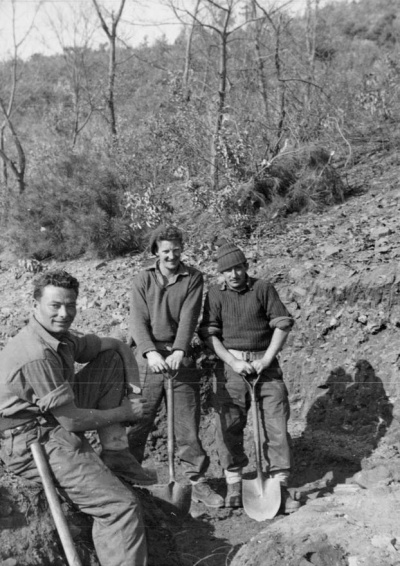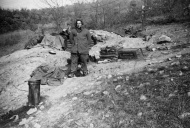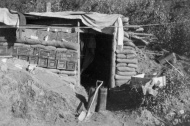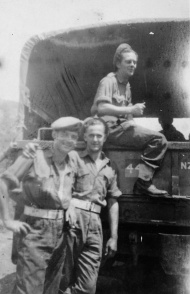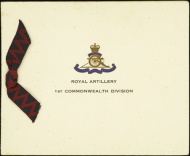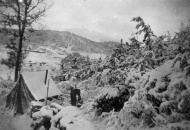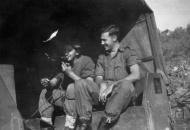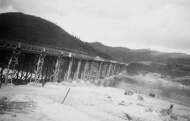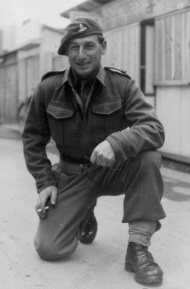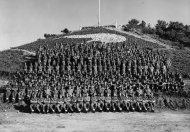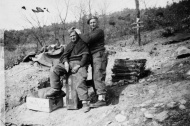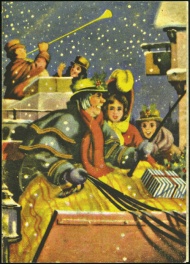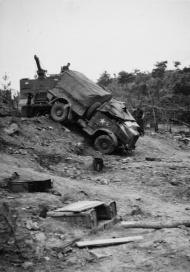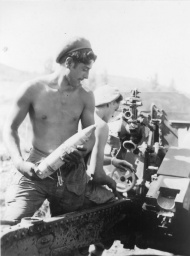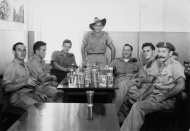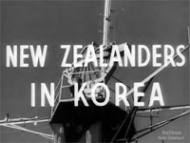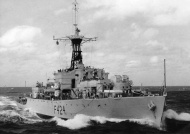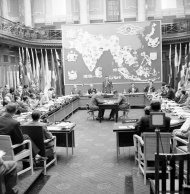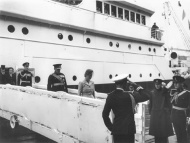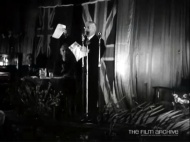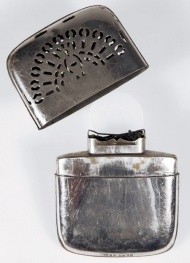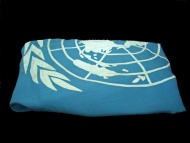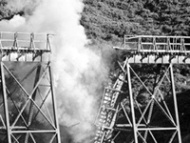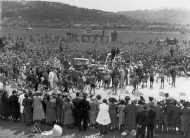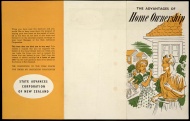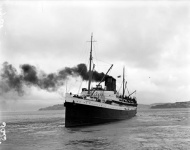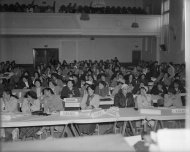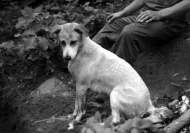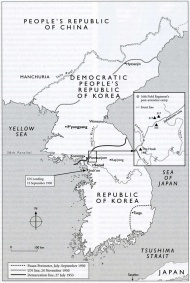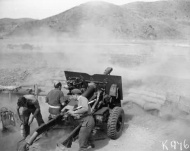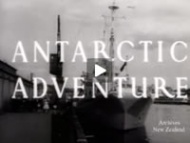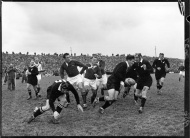Events In History
-
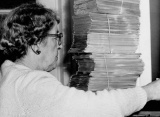 20 September 1954Mazengarb report released
20 September 1954Mazengarb report releasedThe Mazengarb inquiry into ‘juvenile delinquency’ blamed the perceived promiscuity of the nation’s youth on working mothers, the ready availability of contraceptives, and young women enticing men to have sex. Read more...
Articles
Korean War
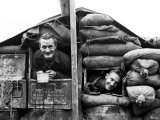
New Zealand was involved militarily in Korea from 1950 to 1957, first as part of the United Nations 'police action' to repel North Korea's invasion of its southern neighbour, and then in a garrison role after the armistice in July 1953.
-
Page 2 – Background
That two Korean states existed in 1950 was an outcome of arrangements for the surrender of Japan in August 1945 which had resulted in the entry of both Soviet and American
-
Page 3 – The 'first' and 'second' Korean Wars
New Zealand was one of the first states to answer the Security Council's call for combat assistance (16 would eventually do so). The government offered two frigates on 29 June
-
Page 4 – Kayforce joins the conflict
In January 1951 a further New Zealand contingent joined the UN Command – Kayforce. On 26 July 1950, in response to another plea from the UN Secretary-General, Trygve Lie,
-
Page 5 – The Commonwealth Division
In October 1951, now deployed on the Imjin River as part of 28th British Commonwealth Infantry Brigade, the New Zealand gunners took part in Operation Commando, an advance of 5
-
Page 6 – End of the conflict
At the end of 1951, a stalemate emerged as both sides improved their defensive positions. The front took on the character of a hilly Western Front. Much bitter fighting took
-
Page 7 – Impact of the war
About 4700 men served in Kayforce and a further 1300 on the frigates during the seven years of New Zealand’s involvement in Korea. Forty-five men lost their lives in this
-
Page 8 – Korean War Roll of Honour
Roll of Honour of New Zealanders killed during the Korean War, 1953-57
-
Page 9 – The Bob Jagger photographs
Collection of previously unpublished images of the Korean War by Kiwi gunner Bob Jagger
-
Page 10 – Kiwi stories
Listen to some of the stories of New Zealanders involved in the Korean War, 1950-1957.
The 1950s

The 1950s saw New Zealanders fight in the Korean War, conquer Mt Everest and crack the 2 million population mark, among many other things. We provide an overview of the decade and a year-by-year breakdown of some of the key events.
-
Page 2 – Overview
PopulationPlunket baby, 1950sThe post-war ‘baby boom’ was the main contributor to a population increase of nearly 400,000 during the 1950s.
-
Page 3 – 1950 - key events
British Empire Games come to AucklandThese were the first Empire Games (the forerunner to the Commonwealth Games) held since the Second World War.
-
Page 4 – 1951 - key events
A selection of key events in New Zealand for 1951
-
Page 5 – 1952 - key events
Yvette Williams leaps for gold
-
Page 6 – 1953 - key events
Sheep-shearing record smashedOn 6 January at the Akers station at Ōpiki, Manawatū, Godfrey Bowen set a new world record when he sheared 456 full-wool ewes in nine hours.
-
Page 7 – 1954 - key events
Key events from New Zealand history for 1954
-
Page 8 – 1955 - key events
A selection of key events in New Zealand for 1955
-
Page 9 – 1956 - key events
A selection of key events in New Zealand from 1956
-
Page 10 – 1957 - key events
Some key events from 1957
-
Page 11 – 1958 - key events
Key events from 1958
-
Page 12 – 1959 - key events
Key events from 1959
-
Page 13 – Further information
Recommended links and books relating to New Zealand in the 1950s
Waitangi Day
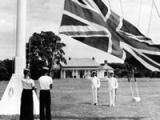
Every year on 6 February, New Zealand marks the signing of the Treaty of Waitangi in 1840. For most people, Waitangi Day is a holiday; for many, and especially for Māori, it is a time for reflecting on the Treaty and its place in modern New Zealand.
- Page 3 - Waitangi Day 1940s-1950sFrom the 1940s the Treaty and Waitangi began to find a place in the national consciousness. For most New Zealanders, they were of historical interest
Related keywords
- bob jagger
- korean war
- christmas
- artillery
- palmerston north
- brian barratt-boyes
- health
- famous firsts
- stamps
- kayforce
- japanese
- film
- cold war
- navy
- royal new zealand navy
- parliament
- international relations
- oral history
- photography
- governor-general
- charles norrie
- railways
- rimutaka
- elections
- sidney holland
- walter nash
- wilfrid owen
- hilda ross
- war objects
- television
- rowing
- empire games
- lake karapiro
- united nations
- flags
- poster
- auckland city
- keith holyoake
- antarctica
- edmund hillary
- children
- wellington city
- queen elizabeth
- dunedin
- royal tours
- royalty
- state housing
- shipping
- ferries
- maori womens welfare league
- casualties
- roll of honour
- mascots
- radio broadcasts
- adolescents
- mazengarb report
- maps
- huskies
- centennial
- treaty of waitangi
- apirana ngata
- waitangi day
- national identity
- race relations
- rugby
- springboks
- athletic park
- all blacks
- protest
- maori sport
- south africa
- apartheid
- anzus
- economy
-
Main image: Setting up phone system in Korea
Building a telephone exchange during the Korean War

